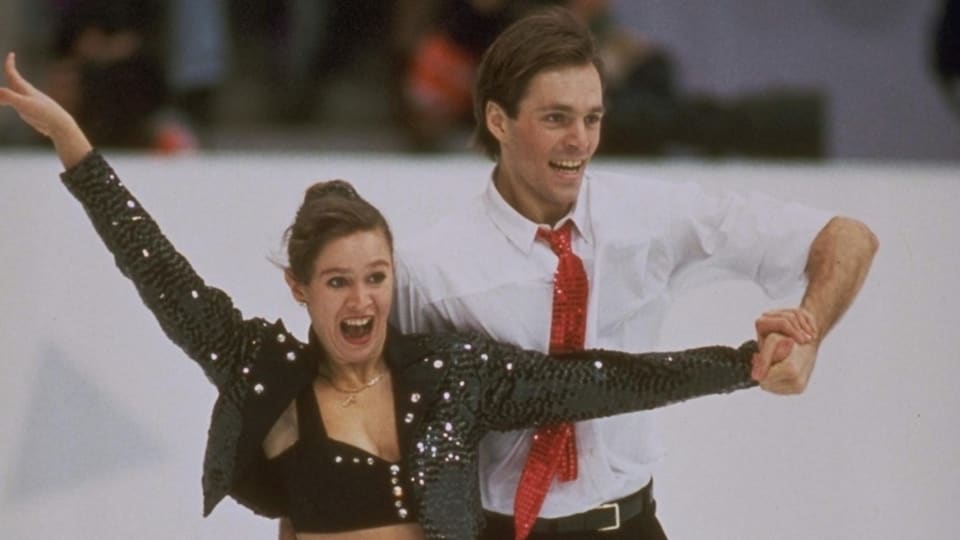
A decade after winning gold at the 1984 Games, and bringing in a new era of adventurous, exciting choreography, Great Britain’s Jayne Torvill and Christopher Dean were back in the Olympics.
There was no question that they still had the competitive spirit. The pair, now aged 36 and 35 respectively, had won the European Championship not long before the Games, and received a huge amount of backing from watching fans.
But there was also plenty of interest focused on the Russian couples,1993 world champions Maya Usova and Alexander Zhulin, and the highly-rated Oksana Grischuk and Yevgeny Platov. Usova and Grischuk had publicly rowed, brewing a huge rivalry between the two pairs that the Russian national federation tried – and failed – to stem, while the British pair worried that the competition’s rules, which had banned classical music, didn’t suit their routine. They had been making changes in the run-up to the Games, leaving them precious little time to perfect their performance.
In the opening compulsory dance, they placed third behind the two Russian pairs, who tied for first place. Two nights later came the original dance, which saw Torvill and Dean place first followed by Usova and Zhulin, and Grischuk and Platov. Just the just the free dance remained.
Usova and Zhulin produced a routine based on circus acts, which was very well received and earned scores of 5.8 and 5.9 from the judges. Torvill and Dean’s display received a standing ovation from the audience, but a much less rapturous reception from the judges. To a chorus of boos, the British pair received five scores of 5.7, and even one of 5.6 for technical merit.
Last to skate were Grischuk and Platov. They received a muted reception from the fans, but the judges were more enthusiastic, the scores ranging from 5.7 all the way up to 6.0. It was enough to win them the gold medal. Four years later, they would retain their title in Nagano.
